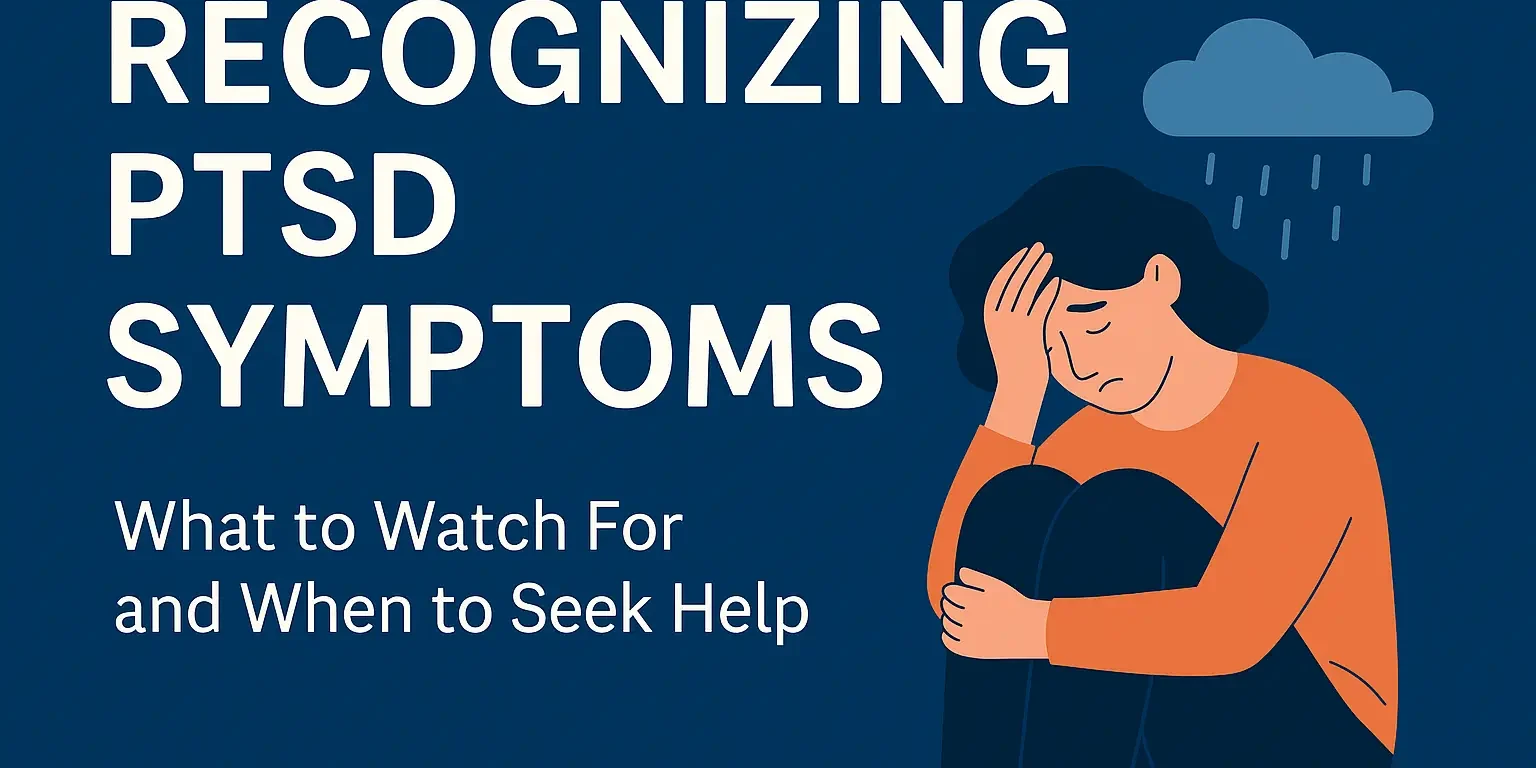If you’ve been feeling disconnected, overwhelmed, or haunted by memories you can’t seem to shake, you’re not alone. Post-Traumatic Stress Disorder (PTSD) affects many people; not just veterans or survivors of extreme violence, but anyone who has experienced trauma that disrupted their sense of safety or control.
Whether your trauma was recent or buried in the past, recognizing the signs of PTSD is the first step toward reclaiming your life. This guide will help you understand what you’re feeling and offer a compassionate path forward.
What Is PTSD?
PTSD is a mental health condition triggered by a traumatic event. While many people recover from trauma over time, others experience symptoms that persist long after the initial danger has passed. These symptoms can interfere with your daily life, your relationships, and your sense of self.
If you’re unsure how trauma might be affecting you, start by reading Understanding Childhood Trauma: A Guide for Healing and Growth.
Common PTSD Symptoms to Watch For
🔹 Intrusive Thoughts and Flashbacks
-
Recurring nightmares or distressing memories
-
Flashbacks that feel like reliving the trauma
-
Physical sensations (e.g., racing heart, sweating) triggered by reminders
🔹 Avoidance Behavior
-
Steering clear of people, places, or topics that remind you of the trauma
-
Withdrawing from conversations or relationships
-
Numbing emotions or distracting yourself to avoid discomfort
🔹 Hyperarousal and Anxiety
-
Feeling constantly on edge or easily startled
-
Trouble falling or staying asleep
-
Sudden anger or irritability
-
Difficulty concentrating
🔹 Emotional Numbness and Detachment
-
Feeling disconnected from others or from your own emotions
-
Hopelessness or low self-worth
-
Losing interest in things you used to enjoy
Explore our guide on The 3 Powerful Stages of Trauma Recovery to understand how healing unfolds over time.
Do I Need PTSD Therapy?
If these symptoms are interfering with your life or lasting longer than a few weeks, PTSD therapy can help. You don’t need to face this alone. We offer:
Even if you’re not sure what type of counseling is best, talking to a trauma-informed therapist can help you feel safe, supported, and seen.
Healing Starts With Recognition
Recognizing PTSD symptoms isn’t the end; it’s the beginning of your healing journey. You’re not broken. You’re not alone. And you don’t have to stay stuck.
If you’re ready to take that next step, consider reaching out. We’re here to walk with you, whether in person or through online counseling anywhere in Pennsylvania.
You deserve to feel safe again.









Some truly nice and useful info on this internet site, as well I believe the style and design has great features.
wpacounseling.com
wpacounseling.com
Bobbie Barnhart
me encantei com este site. Pra saber mais detalhes acesse o site e descubra mais. Todas as informações contidas são conteúdos relevantes e exclusivas. Tudo que você precisa saber está está lá.
Adorei este site. Pra saber mais detalhes acesse nosso site e descubra mais. Todas as informações contidas são informações relevantes e exclusivas. Tudo que você precisa saber está está lá.
I discovered your blog site on google and check a few of your early posts. Continue to keep up the very good operate. I just additional up your RSS feed to my MSN News Reader. Seeking forward to reading more from you later on!…
I am very happy to read this. This is the kind of manual that needs to be given and not the accidental misinformation that is at the other blogs. Appreciate your sharing this best doc.
You really make it seem really easy with your presentation however I in finding this matter to be really one thing which I feel I might never understand. It seems too complex and extremely broad for me. I am looking ahead to your next post, I?¦ll attempt to get the cling of it!
I truly treasure your piece of work, Great post.
Spot on with this write-up, I truly think this web site needs far more consideration. I’ll in all probability be again to learn rather more, thanks for that info.
I really treasure your work, Great post.
I just could not depart your site prior to suggesting that I really enjoyed the standard info a person provide for your visitors? Is gonna be back often in order to check up on new posts